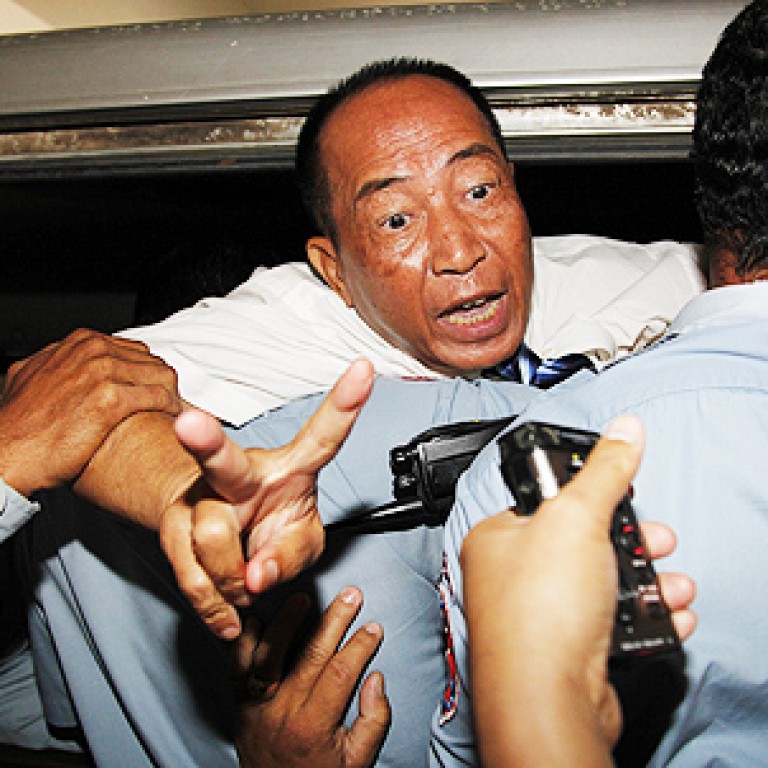
Cambodian journalist sentenced to 20 years in insurrection case
A Cambodian court on Monday sentenced a dissident radio station owner to 20 years in prison on insurrection charges that critics claim are part of a political vendetta by the government.
Judge Chaing Sinat of the Phnom Penh Municipal Court said 71-year-old Mam Sonando was convicted and sentenced on four counts related to an alleged secessionist movement in eastern Cambodia. He was charged with instigating an alleged insurrection in Kratie province in May this year and inciting armed rebellion.
Mam Sonando’s Beehive Radio is one of the country’s few radio stations broadcasting criticism of Prime Minister Hun Sen’s government.
Din Sophanara, the wife of Mam Sonando, told reporters that the verdict will be appealed. She said her husband was not involved in the alleged rebellion and had done nothing wrong.
“There is no real democracy in Cambodia. There is no justice,” she said. Mam Sonando also was fined 10 million riel (HK$19,000).
Three other people said to have been part of a political movement with Mam Sonando and accused of being major instigators of the insurrection were also sentenced. One received a 30-year prison term and the others 15 years each.
Several dozen armed security personnel kept the road in front of the court complex closed as a few hundred supporters of Mam Sonando demonstrated nearby.
The Cambodian Centre for Human Rights condemned the verdict.
“Today’s events represent a gross travesty of justice – an outrageous violation of Mam Sonando’s right to freedom of expression and fair trial rights, including the fundamental right to be deemed innocent until proven guilty,” it said in a prepared statement.
It said no evidence was presented at the trial linking Mam Sonando to unrest involving a land dispute in Kratie province that the government alleged amounted to a rebellion. The statement also echoed widespread concerns among rights groups that Cambodia’s courts act under the pressure of political influence.
The land dispute involved a 15,000-hectare tract of land that had been awarded as a concession to a Russian company but which was being farmed by villagers. The farmers resisted eviction and in May, a 15-year-old girl was shot dead when hundreds of armed police stormed the settlement.
Land disputes have become a critical social and political issue, as powerful companies with influential connections take over land that has been worked by villagers, who receive little or no compensation. It is not rare for deadly force to be employed in evictions.
A month before Mam Sonando was detained in July, Hun Sen had called for his arrest, charging that he was leading a plot to overthrow the government and establish a state within a state.
The New York-based Committee to Protect Journalists had called on the government to drop the case. Shawn Crispin, the group’s Southeast Asia representative, said Hun Sen “has a well-worn history of levelling unsubstantiated anti-state charges against journalists to stifle criticism of the administration”.
Mam Sonando had twice before been jailed for his reporting. Before he was pushed into a prison van Monday, he said he had no comment on the verdict but he was happy that he was “able to help the nation”.
